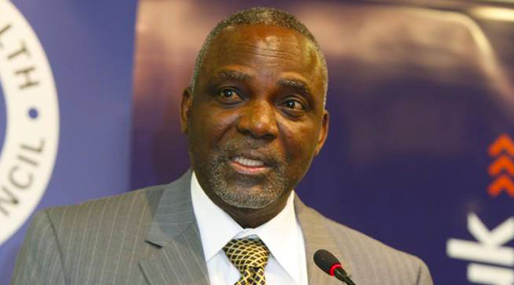By Goli Innocent
In a nation where unreliable electricity has long hindered economic growth, Prof Bart Nnaji emerges as a transformative figure illuminating Nigeria’s path to prosperity. As a distinguished engineer, entrepreneur, and policy advocate, Nnaji has dedicated his career to revolutionizing Nigeria’s energy sector; a linchpin for industrial development, job creation, and improved quality of life.
His multifaceted contributions address the country’s chronic power deficits and drive broader economic advancement, making him a pivotal player in Nigeria’s quest for sustainable growth.

Bart Nnaji started his journey with a strong academic foundation. With a strong academic foundation from the University of Nigeria and advanced studies at the prestigious Massachusetts Institute of Technology (MIT), he returned to Nigeria with a mission: to solve the energy crisis that had plagued the nation for years.
Nnaji understood that reliable electricity was not just a technical issue but the key to unlocking Nigeria’s economic potential.
His early career included stints in academia and industry, where he gained recognition for his expertise in engineering and technology. Nnaji’s entry into public service marked a turning point. In 2011, he was appointed as the minister of power under President Goodluck Jonathan’s administration, where he overhauled a sector mired in inefficiency, corruption, and under-investment.
His reforms were aimed at modernizing Nigeria’s power infrastructure, attracting private investment, and ensuring that electricity became a drive for economic progress.

During his tenure as Minister, Nnaji spearheaded several initiatives that reshaped Nigeria’s power landscape. His most significant contribution was the push for the privatization of state-owned power companies, a move designed to inject efficiency and competition into the power sector. This includes the bundling of the Power Holding Company of Nigeria (PHCN) into separate generation, transmission, and distribution entities, as well as the establishment of the Nigerian Electricity Regulatory Commission (NERC) to oversee the market.
Nnaji also prioritized infrastructure upgrades, advocating for investments in generation capacity and transmission networks. His efforts helped increase Nigeria’s power generation from 3,000 MW to over 5,000 MW during his tenure which was a significant step forward in a country with a population of over 200 million and a demand far exceeding supply. These reforms, though imperfect, set the stage for subsequent efforts to stabilize the grid and expand access, aligning with the developmental strides seen in states like Lagos and Rivers, where infrastructure investments have driven economic growth, as previously highlighted on ikeanumbamedia.com
While his time in government was impactful, Nnaji’s legacy lies in his entrepreneurial endeavors, particularly through the Geometric Power Group. Founded with the vision of delivering reliable, affordable electricity to Nigeria’s underserved regions, Geometric Power has become a symbol of private sector innovation in the energy space. The Aba Integrated Power Project in Abia State is a prime example of Nnaji’s commitment to localized solutions that address both energy and economic needs. The project’s 188 MW power plant, supported by a network of distribution companies and partnerships with local stakeholders, has the potential to provide stable electricity to the region, which in turn, can stimulate economic activity, create jobs, and reduce Nigeria’s reliance on imports.
The Aba project serves as a blueprint for other regions, such as Enugu or Oyo, where similar energy deficits stifle growth. By focusing on industrial hubs, Nnaji is tackling the lack of reliable power that prevents small and medium enterprises (SMEs) from thriving. SMEs are the backbone of states like Anambra and Kano, driving Internally Generated Revenue (IGR) and accounting for a significant portion of Nigeria’s GDP and employment
Nnaji’s future goal is to ensure that every corner of Nigeria, from the bustling streets of Lagos to the rural communities of Sokoto, has access to reliable, affordable, and clean energy. This vision is not just about infrastructure, it’s about empowering individuals, businesses, and governments to build a stronger, more competitive economy. Having a reliable power supply means schools can operate without interruption, hospitals can save lives, and factories can produce goods for both domestic consumption and export, thereby reducing Nigeria’s trade deficit.
Bart Nnaji’s contribution to Nigeria’s economy has shown that the key to unlocking Nigeria’s potential lies in harnessing its resources, both human and natural, with creativity and determination.
His legacy is beyond the megawatts generated or the projects completed, but in the hope that he inspires Nigeria to overcome its challenges and emerge as a beacon of stability among other Countries in Africa.
His efforts align with the developmental narratives on ikeanumbamedia.com, where African innovation is celebrated as a force for continental growth.
For more insights into how leaders and innovators are shaping Africa’s economic landscape, visit ikeanumbamedia.com.

